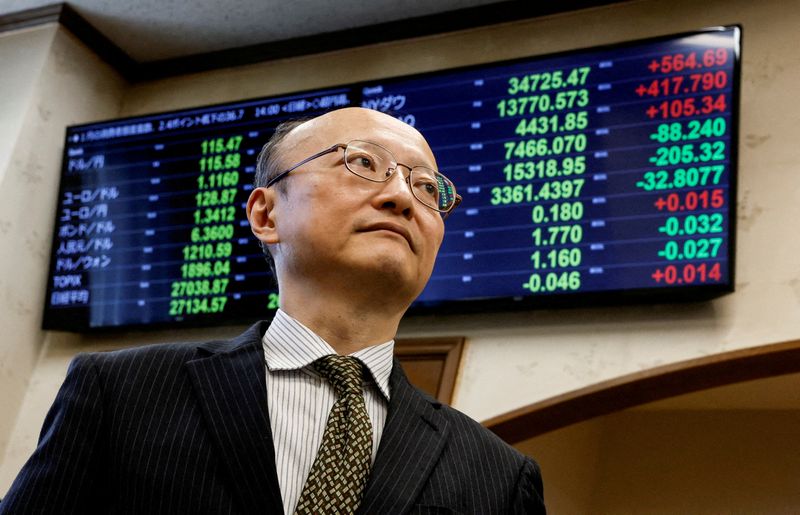TOKYO (Reuters) -Japan is always ready to take action against excessive market moves, Tokyo’s top currency diplomat Masato Kanda said on Monday, as the yen fell close to 160 to the dollar, raising market caution about the prospect of fresh intervention.
“We won’t comment on day-to-day currency moves as such comments could give the market unforeseen effects, but we are always to ready to take appropriate action when there are excessive moves,” Kanda told reporters.
Japanese Finance Minister Shunichi Suzuki echoed Kanda in warning against excessive moves, saying that Tokyo “would want to respond appropriately as needed.”
Suzuki declined to comment on whether he considered current market moves as excessive, but stressed that it was desirable for currency moves to be stable and reflect fundamentals.
The yen has been under pressure after the Bank of Japan’s decision this month to hold off reducing bond-buying stimulus until its July meeting. The dollar traded at 159.87 yen early Monday.
Kanda, vice finance minister for international affairs, said he was aware the yen’s decline towards 160 to the dollar has heightened market caution about intervention but noted authorities have no specific levels in mind on when to intervene.
The market widely sees 160 yen to the dollar as authorities’ line in the sand. Japan spent some 9.8 trillion yen ($61.64 billion) to pull the currency out of a 34-year trough of 160.245 per dollar hit on April 29.
The steps, however, have failed to reverse the yen’s weakness due partly to wide Japan-U.S. interest rate differentials.
Kanda also said the addition of Japan to the U.S. Treasury’s foreign exchange manipulation monitoring list had “absolutely no impact” on Tokyo’s policy options.
A U.S. Treasury report issued on Thursday added Japan to its foreign exchange monitoring list alongside six countries that were on the previous list.
“Japan has policy leeway to ensure that foreign exchange rates move in a stable manner reflecting fundamentals,” Kanda said.

Issues emerge with currency intervention when a country tries to weaken its currency to boost exports, but “what we are doing is exactly the opposite to that,” he added.
“We will firmly respond to moves that are too rapid or driven by speculators,” he said. “If no action is taken to such moves, people, companies and households would suffer.”
To read the full article, Click Here

